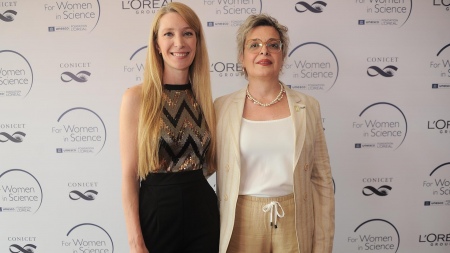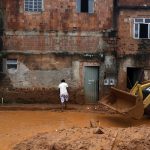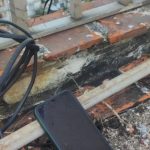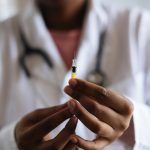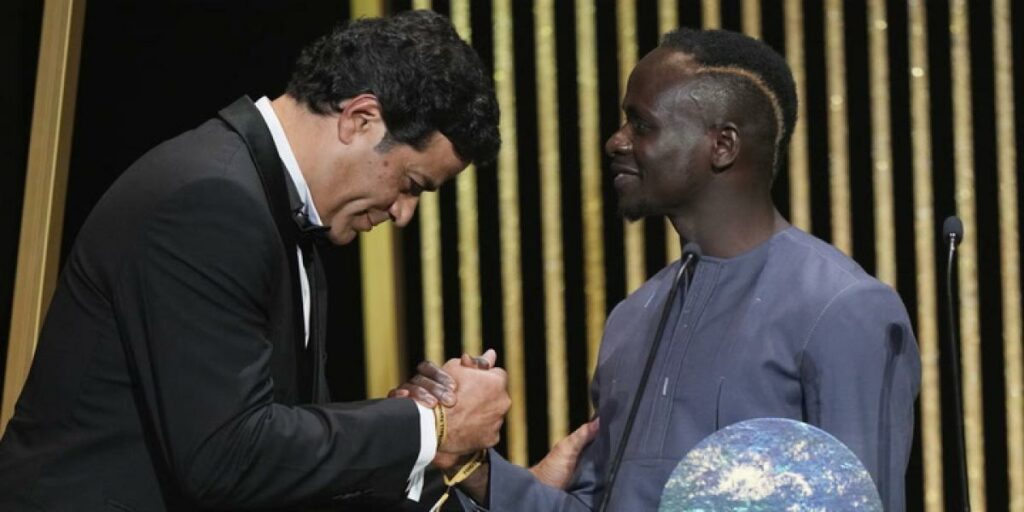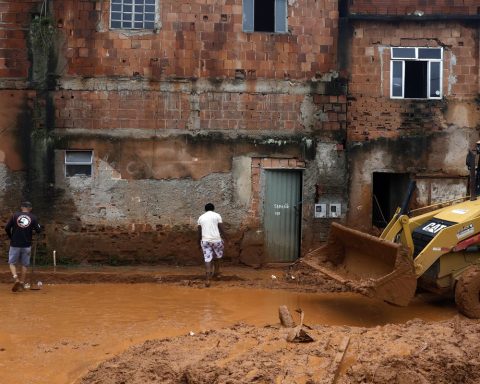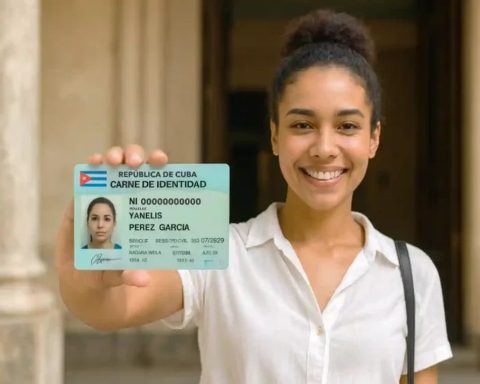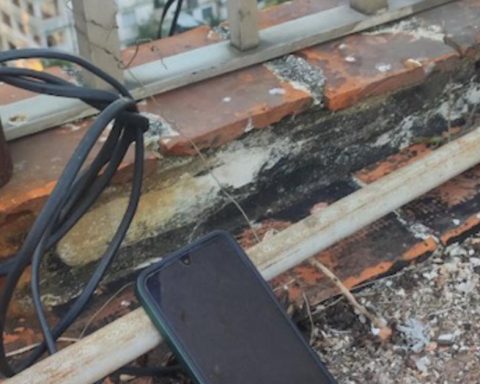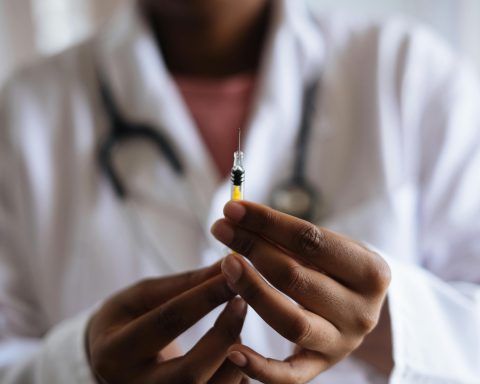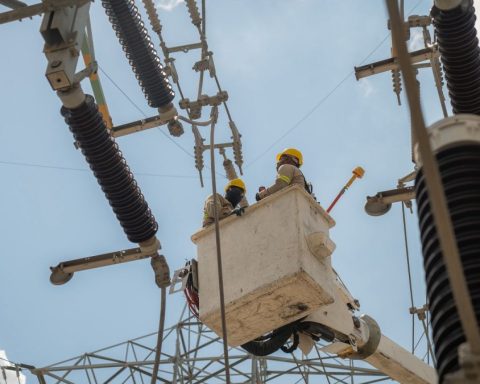The chemist Carla Giacomelli and the engineer Guillermina Amica were the winners this Monday in the national edition of the L’Oreal-Unesco Award “For Women in Science”which is held for the sixteenth consecutive year in the country with the aim of “awakening scientific vocations among girls, supporting young researchers and rewarding excellence”.
The award ceremony was attended by the Minister of Science, Technology and Innovation, Daniel Filmus; the president of the Conicet, Ana Franchi; the director of the UNESCO Regional Office of Sciences for Latin America and the Caribbean, Ernesto Fernández Polcuch, and the president of L’Oreal Argentina, Jean-Noël Divet, among other authorities.
“We think the slogan ‘science changed the world, they changed the rules’ seems very good. I would add that it is that ‘between all of us we change cultures’, because Argentina has made great progress in the rules that promote equality”, said Filmus before the award ceremony.
And he anticipated that from the Ministry and the Conicet they are working on “the expansion of possibilities”, building gardens in workplaces and that soon they will inaugurate a program to finance periods of care -of sons and daughters- for women and men when they travel to congresses and events to “facilitate conditions of equality”.
The director of the Conicet added that “women need technological scientific systems, international organizations such as Unesco and companies such as L’Oreal so that our careers are not doubly difficult, but simply equally difficult as that of our male colleagues.” ”.
And added that It is necessary that women “do not have to sacrifice their working life or dedicate many hours of their working life to the issue of care, both for children and the elderly.”
She also recalled that women are present in science, but “less visible” because “only 5% of women win Nobel prizes in science, and that is very serious.”

An investigation of Córdoba
Carla Giacomelliprincipal investigator of the Córdoba Physicochemical Research Institute (Conicet-UNC), of Córdoba, laureate in the Award category, told Télam that “This award is a gratification and recognition both personally and for the team that carries out the project. It represents an excellent opportunity to make visible the work we carry out not only in basic research but also in the relationship with the socio-productive sector”.
The scientist pointed out that “making the scientific work of a woman visible in the interior of the country will help girls, adolescents and young people to embark on this fascinating adventure that is scientific work, usually linked to a male, solitary and routine activity”.
“While it is true that the gender gap in STEM (Science, Technology, Engineering and Mathematics disciplines) is important, scientific work is by no means only for men, but rather a collective work and creative that must be nourished by as many diversities as possible”, he maintained.
The project for which he received the award is called “Bioresponsive materials: how to repair tissues with genes” and its objective is the design of materials that allow the stimulation of bone regeneration.
“What we design is a hybrid biomaterial, this is a compatible material for use in living beings (including humans) that is made up of different components (organic, inorganic, biological compounds) and whose function is to replace or repair damaged tissue,” he explained. Giacomelli.
And continued: “In our project we combine proteins with inorganic nanoparticles that can carry genes (nanocarriers) to repair bone tissue. The objective of this combination of components is to prepare a biomaterial with diverse functionalities to resolve a trauma (injury)”
“In particular, the project proposes to generate a support structure formed by silk proteins that contain calcium phosphate nanocarriers (whose composition is similar to the mineral part of bones) to transport genes that encode the expression of the proteins necessary to generate bone healthy,” he said.
And he added: “The protein structure is biodegradable (resorbable) as the nanocarriers enter the bone cells to release the genes inside and express the protein of therapeutic interest. In this way, the bone is repaired by the action of proteins expressed by cells and the supporting protein structure disappears.
The project is in the basic research stage: “If these biomaterials were to reach the market, they would have to be incorporated through surgery at the site of bone trauma (as is done today with a prosthesis, for example) and could be used to repair bone trauma in orthopedics and dentistry.”
The climate agenda in Bariloche
For her part, Guillermina Amica, assistant researcher at the Bariloche Atomic Center (CAB), Conicet National Atomic Energy Commission, and winner in the Scholarship category, works at the “CO2 conversion for the generation of synthetic natural gas using hydride-forming materials”.
“We seek to take advantage of a polluting gaseous residue (CO2) as a raw material to generate value-added products. The particularity of the materials we study is that they are solid with the ability to chemically store hydrogen inside,” Amica explained to Télam. .
And he continued: “These solid materials, under certain conditions, can react with CO2 to generate synthetic gases of interest such as methane or hydrogen-methane fuel mixtures.”
Due to the climate crisis, This type of research is part of the agenda of many laboratories worldwide.

“The emission of greenhouse gases, mainly carbon dioxide, is responsible for climate change that encompasses not only global warming but also changes in rainfall, winds and sea level. In this context of climate crisis it is It is essential to work with different approaches: on the one hand, to increase the prominence of clean and renewable energies”, recalled the researcher.
“On the other -he continued-, as many industrial processes generate CO2 as a by-product and release it into the air, it is necessary to implement technologies that allow us to capture it, store it and, why not, use it to produce something with added value. This project seeks to combine the hydrogen and carbon dioxide cycles.
About the prize, Amica said, “As a young researcher, this distinction is a great boost and reflects that there is a lot of interest in the line of work. This is very positive for my entire research group because scientific activity requires multidisciplinary work.”
The award trajectory
In Argentina, the L’Oreal-Unesco Award for Women in Science has been held for 16 years in collaboration with Conicet and has so far recognized 46 women scientists -not including the winners of the current edition- who they represent provinces and cities from all over the country; since 2017, the number of recognitions in the local award has been extended from 2 to 6.
The 2022 special mentions in the Award category went to Lucía Mercedes Fama, researcher at the Institute of Physics of Buenos Aires (IFBA, UBA-Conicet) and Liliana Verónica Mogni, researcher at the Institute of Nanoscience and Nanotechnology Executing Unit (INN, Conicet-CNEA).
While in the Scholarship category, special mentions went to Lucía Asaro, a researcher at the Materials Science and Technology Research Institute (Intema, Conocet-Unmdp) and to Noelia D’Elía, a researcher at the Southern Chemistry Institute ( Inquisur, Conicet-UNS).
